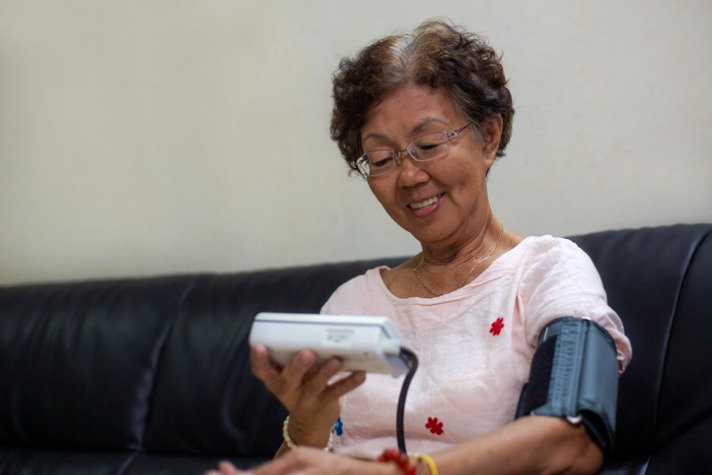Understanding your blood pressure
Published by MAXSolutions on September 16, 2021

What is blood pressure?
As blood is pumped by the heart around the body, the pressure with which it pushes against the walls of blood vessels changes.[1]
When the heart is squeezing blood into the arteries, the pressure is high. When the heart relaxes, in between beats, the pressure is lower.
When your doctor measures your blood pressure, it is given as 2 figures — the highest measurement (systolic) over the lowest measurement (diastolic).
Blood pressure does not stay the same all the time [2]. It changes to meet your body’s needs. Your blood pressure changes depending on things such as body position, breathing, emotional state, exercise and sleep.
For example, when you exercise your body needs a greater supply of blood to give more oxygen and energy to your cells and to carry away waste. Your heart will beat more and increase the pressure of your blood as it travels around your body.
On the other hand, when you are asleep, your blood pressure will be lower because the needs of your body are much less and blood can travel more slowly to meet your body’s requirements.
According to Health Direct your blood pressure is high if the reading is higher than 140/90 mmHg, which is considered to put you at higher risk of having a heart attack or stroke (cardiovascular disease). This is true if the higher figure (systolic) is higher than 140, or the lower figure (diastolic) is higher than 90, or both.
High blood pressure is also known as hypertension. More than one third of Australians over the age of 18 have high blood pressure.[1]
Managing your blood pressure
The Heart Foundation recommends lifestyle changes in conjunction with advice from your doctor to manage high blood pressure. Eating plenty of fruit and vegetables and exercising regularly can improve blood pressure. Even small changes can make a difference and several small changes, made together can make a big difference[3].
It can be difficult to make lifestyle changes. Particularly if your lifestyle habits like eating and exercise have remained the same for many years. You don’t need to do it alone. Your EAP can help you find what is going to benefit you the most. To make an appointment email support@maxsolutions.com.au or call 1800 629 277.
References
https://www.healthdirect.gov.au/high-blood-pressure-hypertension
https://www.betterhealth.vic.gov.au/health/conditionsandtreatments/blood-pressure
https://www.heartfoundation.org.au/blog/five-foods-to-help-lower-blood-pressure
Share
Tags
Found this useful?
Help and advice
Our blogs are about helping people seek the information that they need for their steps in the workforce.














_1.jpg)





























.jpeg)

















